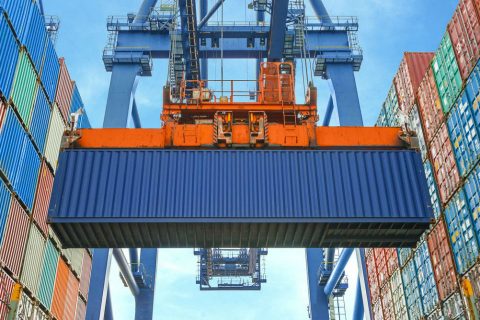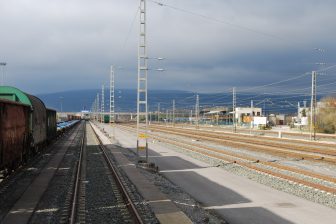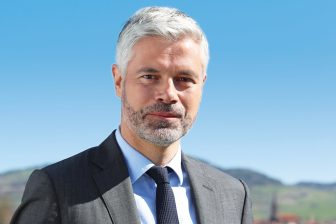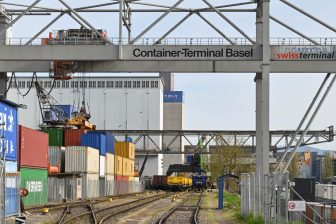
Port of Rotterdam: from gateway to final destination
Should Rotterdam be a destination on the New Silk Road? That is a question many have asked, especially as the Port of Amsterdam joined the bandwagon last week. Rail freight is often cited as the faster and more reliable alternative to ocean freight. Ports are faced with the challenging task of developing a rail policy that is increasing its opportunities as a transit hub, without jeopardising exisisting business. But as a major player within the freight tranportation chain, the Port of Rotterdam could assume other roles as well.
“The Port of Rotterdam definetely wants to be a direct connection on the New Silk Road railway network”, said Matthijs van Doorn, Director of Logistics. “It is an opportunity for the port, but it wants to consider the options carefully.” Last week, the first direct rail feight service between the Dutch capital of Amsterdam and the Chinese city of Yiwu was launched. It was the second Dutch rail connection on the New Silk Road, as Tilburg joined the network in 2016 with a direct link to Chengdu.
However, for a port like Rotterdam the challenges are somewhat different. Whether or not it poses a threat to its ocean freight volumes, the New Silk Road changes completely its positition on the market, as it will shift from a transit destination to a final destination, argued Michel Jak, General Manager of SmartPort, a partnership between the Port of Rotterdam Authority, Deltalinqs, the Municipality of Rotterdam, Erasmus University Rotterdam and Delft University of Technology.
New players
“Rather than entering Europe through the Port of Rotterdam after travelling overseas, products manufactured in China are now transported through Europe, where Rotterdam is often at the end of the journey. The New Silk Road will increase the share of cargo transported via the swifter and more reliable option of rail. With the advance of the New Silk Road, Europe is also supplied via the Czech Republic, Poland and Greece; not just via Rotterdam, Hamburg and Antwerp”, he writes in a recent blog on the Port of Rotterdam website.
“As such, transit countries are given the opportunity of adding value along the way, for example when cargo is transloaded to a different train or the rolling stock is fitted with different bogies where a different track gauge is entered, he explains. “Along the way, everyone gets a chance to earn money. And we are expected to buy the finished products – i.e. pay up.”
New role
However, Rotterdam does not need to be excluded from the process, Jak believes. The Netherlands could assume a directing role in the process. “If it were up to me, we would be handling the more difficult aspects of logistics: inspection, customs, planning, forecasts, blockchain transactions (the transfer of information and property). They present a range of issues, which often require dedicated study. We could handle everything that has to do with logistics, apart from the actual transport.
“I believe assuming a directing role is actually the better deal, because it creates a lot of new added value and requires you to develop new innovations within the supply chain. I would like to refer to an example: at the Aalsmeer Flower Auction, they trade flower shipments that never physically enter the Netherlands. We earn money off flowers traded between Kenya and Russia, for instance. We serve as the marketplace; the middleman. Perhaps we can play a similar role within the supply chain between China and the Netherlands? For example, we could arrange for trains to be filled to capacity at all times. Or help shippers select the best modes of transport for their cargo.”
Statistics
Although the total throughput of freight at the Port of Rotterdam saw a year-on-year increase of two per cent in 2017, the transshipment of freight by rail decreased. This is a worrying development, acknowledged van Doorn. “We must enhance our rail freight services, especially to the well-connected areas.”
Currently, a shuttle service connecting the Port of Rotterdam to Tilburg runs as an overland extension of theTilburg-Chengdu line. Operated by GVT-Group of Logistics, the service was increased to five-weekly departures in December last year, as the overland rail routeto China is gaining popularity.
Silk Road Gateway Poland Summit
On 20-21 March 2017 the Silk Road Gateway Poland Summit takes place in Wroclaw. Organised by RailFreight and Nieuwsblad Transport, it fathers high level expert speakers who will share their knowledge and experience on the silk road; the route and connections, what it means for supply chains and logistics in general, the risks, the interest of China, what it means for Poland and much more. Registration is still open! View the programme and book your place now.






